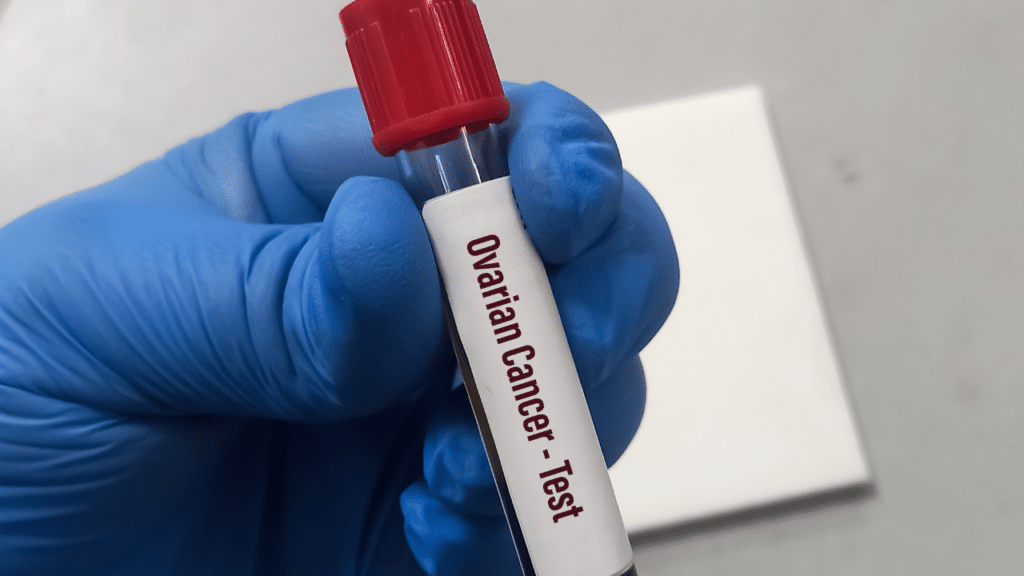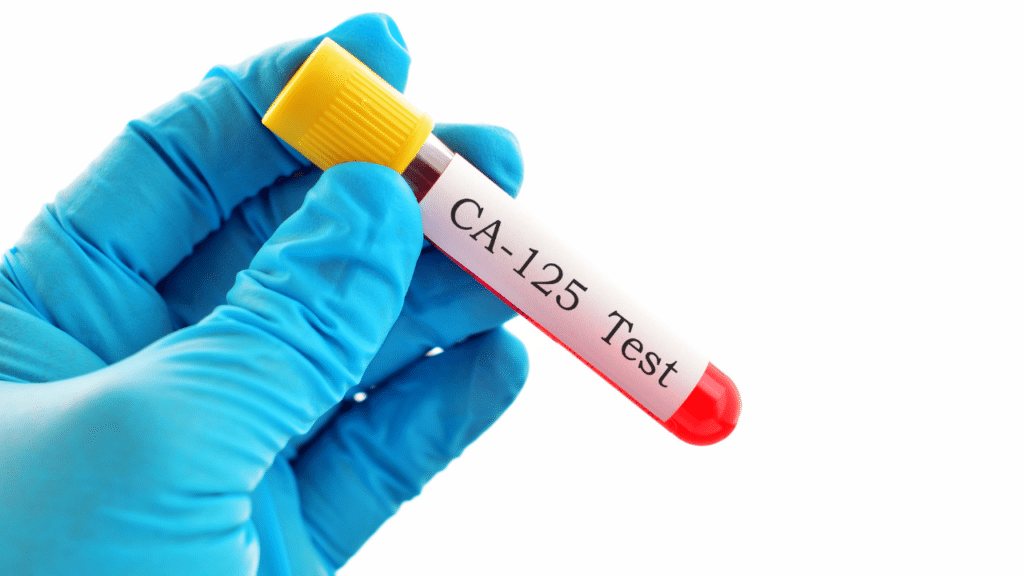Ovarian cancer, often called the “silent killer,” can be difficult to detect in its early stages. Ovarian Cancer symptoms can be vague and easily misunderstood for less serious conditions, which is why it’s important to take proactive steps in screening if you’re at risk. One of the most valuable tools available for monitoring ovarian cancer is the Cancer Antigen (CA) 125 Serum Test. This simple blood test that you can order here measures the level of CA 125, a protein that is often elevated in women with ovarian cancer. While it’s not a definitive diagnostic tool on its own, it plays a crucial role in combination with other tests and examinations.
If you’re a woman experiencing certain symptoms, have a family history of ovarian cancer, or have been diagnosed with the disease and want to monitor your treatment, the CA 125 test could provide essential information about your health. Below, we’ll explore why you should consider getting this test and how it could potentially save lives.

Understanding the Basics: What is CA 125?
CA 125 is a protein that is present in higher levels in the blood of women with ovarian cancer. However, it’s important to note that elevated CA 125 levels are not exclusive to ovarian cancer; they can also be linked to other types of cancer or benign conditions like endometriosis, pelvic inflammatory disease, or even menstruation. So, while the CA 125 test is a valuable tool in detecting and monitoring ovarian cancer, it isn’t used alone for diagnosis. Instead, it provides additional insights when combined with other diagnostic procedures, such as ultrasounds, CT scans, and biopsies.
Despite its limitations, this test offers one of the best available options for women who are at high risk for ovarian cancer or who need to monitor the progression of the disease. It’s particularly useful in the following contexts:
1. Detecting ovarian cancer in symptomatic women.
2. Screening high-risk women who may have a genetic predisposition or family history of the disease.
3. Monitoring cancer treatment and checking for recurrence in women who have already been diagnosed.

Detecting Ovarian Cancer Early: Why the CA 125 Test Matters
Ovarian cancer is notoriously difficult to detect early. Unlike other cancers, there’s no universal screening protocol like the Pap test for cervical cancer or mammograms for breast cancer. This is one reason why many women don’t find out they have ovarian cancer until the disease has reached an advanced stage, making treatment more challenging and less effective.
The CA 125 test can help change that. Although it’s not perfect, it gives doctors an important piece of the puzzle when trying to identify ovarian cancer in its early stages, especially in women who are experiencing symptoms. These symptoms include persistent abdominal pain, bloating, changes in urination, and difficulty eating or feeling full quickly—symptoms that are easily mistaken for gastrointestinal issues or other less serious conditions. If these symptoms persist, particularly in women over 50 or those with a family history of ovarian cancer, a CA 125 test could provide vital information about whether cancer is a possibility.
In such cases, the CA 125 test is often the first step in a broader diagnostic process. If elevated levels are detected, doctors may recommend additional tests, such as transvaginal ultrasounds or a biopsy, to determine if ovarian cancer is present. While the test alone won’t give you a diagnosis, it could prompt early intervention that might save your life.

Who Should Get the CA 125 Test?
The CA 125 test isn’t for everyone, and it’s typically not used as a general screening tool for ovarian cancer. However, there are specific groups of women for whom this test could be particularly beneficial:
1. Women Experiencing Symptoms of Ovarian Cancer
Women who are experiencing symptoms such as persistent abdominal pain, bloating, unexplained weight loss, or changes in urination or bowel habits should consider talking to their doctor about the CA 125 test. While these symptoms can be caused by a variety of less serious conditions, they can also be early warning signs of ovarian cancer. In these cases, the CA 125 test can provide an initial clue as to whether ovarian cancer might be a concern and prompt further testing.
2. Women with a Family History of Ovarian Cancer
If you have a history in your family of ovarian cancer, especially among first-degree relatives like your mother or sister, you may be at higher risk of developing the disease. In such cases, your doctor may recommend regular CA 125 testing as part of your health monitoring routine, even if you don’t have any symptoms. Genetic factors play a significant role in the risk of ovarian cancer, and being proactive with testing can help you catch potential problems early.
3. Women Undergoing or Finishing Cancer Treatment
For women who have already been diagnosed with ovarian cancer, the CA 125 test plays a crucial role in monitoring the effectiveness of treatment. After surgery or chemotherapy, doctors use this test to track CA 125 levels and see if they are decreasing, which is often an indicator that the treatment is working. A significant drop in CA 125 levels could mean that the cancer has been effectively treated. Conversely, if CA 125 levels remain high or start rising again after treatment, it could be a sign that the cancer is still present or has returned, even if there are no other symptoms yet.
4. Women with Other Types of Cancer or Conditions Affecting CA 125 Levels
Although the CA 125 test is most commonly associated with ovarian cancer, it’s also used in other types of cancer, such as endometrial or fallopian tube cancer. Additionally, women with certain benign conditions that can elevate CA 125 levels—such as endometriosis or pelvic inflammatory disease—might undergo the test as part of a broader diagnostic process to help doctors better understand their condition.
The Role of CA 125 in Monitoring Treatment and Recurrence
One of the most significant uses of the CA 125 test is in monitoring the effectiveness of treatment for ovarian cancer. If you’ve undergone surgery, chemotherapy, or other treatments, your doctor will likely track your CA 125 levels to see how well your body is responding. A steady decrease in CA 125 levels typically means that the treatment is working and that cancer cells are being eliminated.
However, the CA 125 test is equally important in monitoring for cancer recurrence. Even after successful treatment, ovarian cancer can come back, often without any noticeable symptoms in the early stages. Regular CA 125 testing allows doctors to keep an eye on your condition and catch any potential recurrence before it becomes more advanced. This early detection of recurrence is crucial because it enables doctors to adjust your treatment plan quickly and improve your chances of long-term survival.

When Should You Get a CA 125 Test?
If you’re considering a CA 125 test, the best course of action is to talk to your healthcare provider. They’ll assess your symptoms, family history, and overall risk factors to determine if this test is appropriate for you. Here are some situations where you should consider discussing the CA 125 test with your doctor:
• You have persistent symptoms such as abdominal pain, bloating, or changes in urination.
• You have a family history of ovarian cancer.
• You’ve been diagnosed with ovarian cancer and want to monitor your treatment.
• You’ve been treated for ovarian cancer and need to check for recurrence.
Conclusion: A Tool for Proactive Health Monitoring
While the CA 125 test is not a standalone diagnostic tool for ovarian cancer, it is an invaluable part of the broader screening and monitoring process. By understanding your risk factors and being proactive about your health, you can use this test to detect ovarian cancer early, monitor your treatment, and keep an eye on potential recurrence. For many women, this test is a lifeline that helps ensure better outcomes in the fight against ovarian cancer.
If you’re experiencing symptoms or have a family history of ovarian cancer, consider if the CA 125 test is right for you. It could provide critical insights into your health and potentially save your life.
